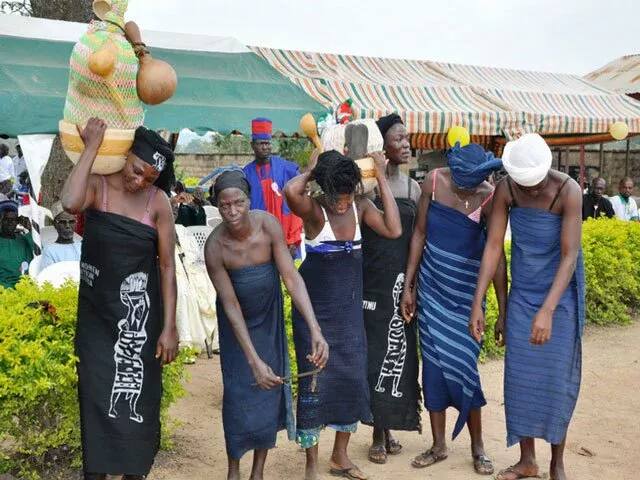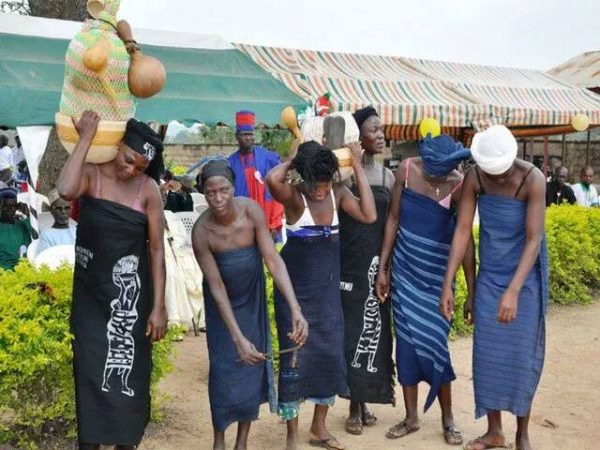The word Gbagyi or Gbari refer to both a people and the language of the people. With an estimated population of about 15million, the tribe is regarded as probably the most populated ethnic and indigenous group in the middle belt and the Federal Capital Territory. They are predominantly found in Kaduna, Niger states and the FCT, with a significant number also found in Nassarawa and Kogi states of Central Nigeria. In times past, they were loosely referred to as Gwari by both the Hausa Fulani group and the European pre-colonialists, a result of the inability to properly pronounce Gbabyi or Gbari. This term has in recent times been regarded as derogatory and therefore, the emphasis on the right appellation; Gbagyi or Gbari, with the latter being the most preferred name.
The Gbagyi Tribe: An Exemplary Tribe
The Gbagyi people are known to possess multiple traits and attributes that are so exemplary. For example, they are an extensively peace-loving people, as well as an excessively transparent and accommodating people. Due to these attributes, it is often heard in the North, while transacting businesses, “mu yi shi Gwari Gwari,” (translated to mean “let’s do it like the Gbagyi” or “in the Gbagyi way”).
The Economy and Trado-Political Structure of the Gbagyi People
The Gbagyi people are predominantly farmers, hunters and artisans of traditional art and crafts like pottery, woodwork etc.The Gbagyi were the major inhabitants of Abuja before its adoption as the Federal Capital Territory of Nigeria. After the Federal Capital was moved to Abuja, the Gbagyi’s claimed violations of their customary and ancestral beliefs such as the removal of people from their ancestral homes, from spiritual symbols such as Zuma Rock etc.
The Gbagyi Marriage Customs and Tradition
In the typical Gbagyi culture, the male, initiation into the marital life begins between the age of fifteen to eighteen as boys within this age bracket are considered capable of producing offspring. For the female gbagyi child, betrothment could be considered between the early age of eight and ten. This is due to the expectation that the girl will be ripe for marriage by the time the dowry payment is completed and a marriage date fixed.
For a marriage to occur, a boy must scout for a wife or allow his parents make a decision on his behalf. Some of the determining questions for the process to commence includes: how hard working is the family of the potential bride? Is she virtuous and full of chastity? What is the family’s history in/of previous marriages? Are there any case of infertility or impotence in their family? And most importantly whether the bride-to-be had been secretly betrothed in the past.
These investigations lead to the next phase; the commencement of courtship, which mostly lasts for about seven years, so as to ascertain other factors. There are two approach to courtship among the Gbagyi people. The first method is a function of the groom’s parent indicating interest in a particular girl. They direct the boy’s interest that way and accost the family of the said girl on his behalf. This is usually stems from the boy’s parents having a desire for their son to marry from a particular family, for private or popular reasons.
The second approach lets the groom to hunt for a wife by himself. He reports to his parents whenever he finds a girl of his liking. Then the next phase is initiated. A sending of a delegation by the groom’s parents to the bride’s. The bride’s parents in turn requests some time to consult with the girl and subsequently, fix a date for the groom’s delegation to return with two sets of plate, which when received signifies an acceptance of the proposition. From this point, a Migbiyi, who is an intermediary from the bride’s family becomes the conduit and channel of information between both families.
The courtship consist the dowry payment too, where the groom (with the help of his friends) is required to do some farm work for the bride’s parents for a period of seven years. The groom is also required to bring an equivalent of 50kg of guinea corn as a test of the groom’s ability to feed the bride. This is called wyiga. The groom begins with one wyiga and continues to add one until the seventh year when he presents seven wyiga shortly before picking a date for the marriage. Within these years, visits between the intended couples is allowed, usually in the accompaniment of their friends in order to discourage sexual immorality. Conceiving out of wedlock calls for banishment of the girl till after childbirth. However, the wives of the bride’s brothers can bill the groom and friends for the hospitality and services rendered. This could be done by leaving a few coins in bathing water, handwashing water and in an extra bowl when meals are served. The groom is expected to double whatever amount he and his companion finds.
The Gbagyi tribe gives no limit to the number of wives a gbagyi man could marry. Also, at weddings a caveat is handed out to the couple, the man especially, to rather return the girl to her parents if she falls short of his standard or expectation to avoid malice and mal treatment. By implication, Gbagyi people encourage polygamy and allow divorce.
The Paramount Ruler of the Gbagyi people is referred to as the Sa-Gbagyi
References
Chigudu Tanko Theophilus (2008), A brief History of the Gbagyi Speaking People, an unpublished Article
Mefor, Law (16 December 2008). “Is FCT truly a federal zone?”. Daily Independent. Nigeria: Independent Newspapers Limited (Lagos), via odili.net. Retrieved2009-12-20.
Chigudu Tanko T, (2008:2,) The Impact Of Urbanization on the Gbagyi People in Abuja
Shekwo, Joseph (1984). Understanding Gbagyi folktales : premises for targeting salient electronic mass media programs (Thesis). Northwestern University.
Rosendall, Elias (1998). Aspects of gbari grammar (Thesis). University of Texas at Arlington.
Featured image source: Faces International Magazine


